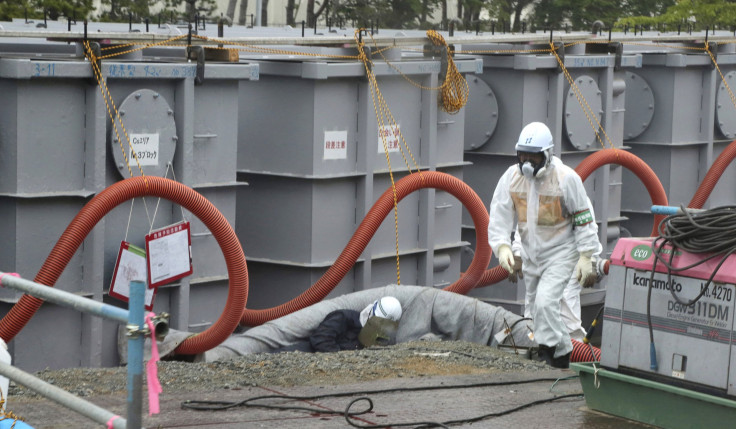Fukushima Operator Tokyo Electric Plowing Ahead With Nuclear Restarts, Despite Protests

Tokyo Electric Power Co. (TEPCO), the operator of the Fukushima Daiichi nuclear power plant damaged by an earthquake in 2011, said Thursday at an annual meeting that it would restart nuclear reactors, rejecting proposals from antinuclear shareholders to scrap the units over safety concerns.
TEPCO’s board argued shareholders should reject those proposals because the reactors provide a base of power without which the company cannot meet customers’ energy needs.
"Nuclear power is characterized as an important base-load power source in the nation's basic energy plan, and we see the Kashiwazaki-Kariwa plant as an important facility to secure a stable electricity supply," Executive Vice President Hiroshi Yamaguchi told the meeting, according to the Global Post.
Greenpeace and other activist groups holding TEPCO shares tried to sway the board to decommission the reactors and shift the company’s recovery plan to eliminate nuclear power. Campaigners before the meeting held banners saying, “No nuclear restarts!,” some wearing white-hooded coveralls and face masks designed to protect workers from radiation, Bloomberg reported.
TEPCO has already restarted two nuclear units in northwest Japan, despite being opposed by 59 percent of the more than 3,000 respondents to a poll in March by the Asahi newspaper.
The groups united to form the Nuclear Phaseout TEPCO Shareholder’s Movement and proposed 10 motions, including the appointment of nuclear opponents to TEPCO’s board, halting construction of two reactors in northern Japan, and improving working conditions, but all bids were rejected.
The Japanese government, TEPCO’s biggest lender for its plan to recover financially from the Fukushima disaster, supported TEPCO’s decision. Seventy percent of TEPCO’s shares belong to banks, insurance companies and investment firms, according to Bloomberg, so it was unlikely they would have approved any efforts to keep TEPCO’s nuclear plants shuttered. Many have lent TEPCO money in order to help the company restart the reactors and reduce expenditures on fossil fuels. TEPCO lost billions of dollars to compensation and cleanup costs after the nuclear disaster forced 160,000 people to evacuate due to radiation exposure.
TEPCO also announced Thursday that its advanced water treatment system at Fukushima is back in operation after several repairs and upgrades. The system was installed in October 2012 and is designed to remove most radioactive pollution from water stored at the facility, but has suffered several setbacks.
© Copyright IBTimes 2024. All rights reserved.












